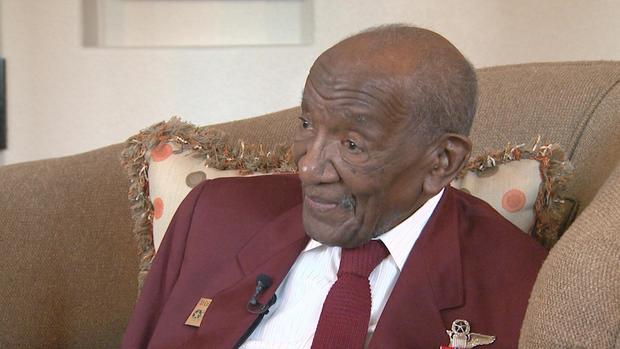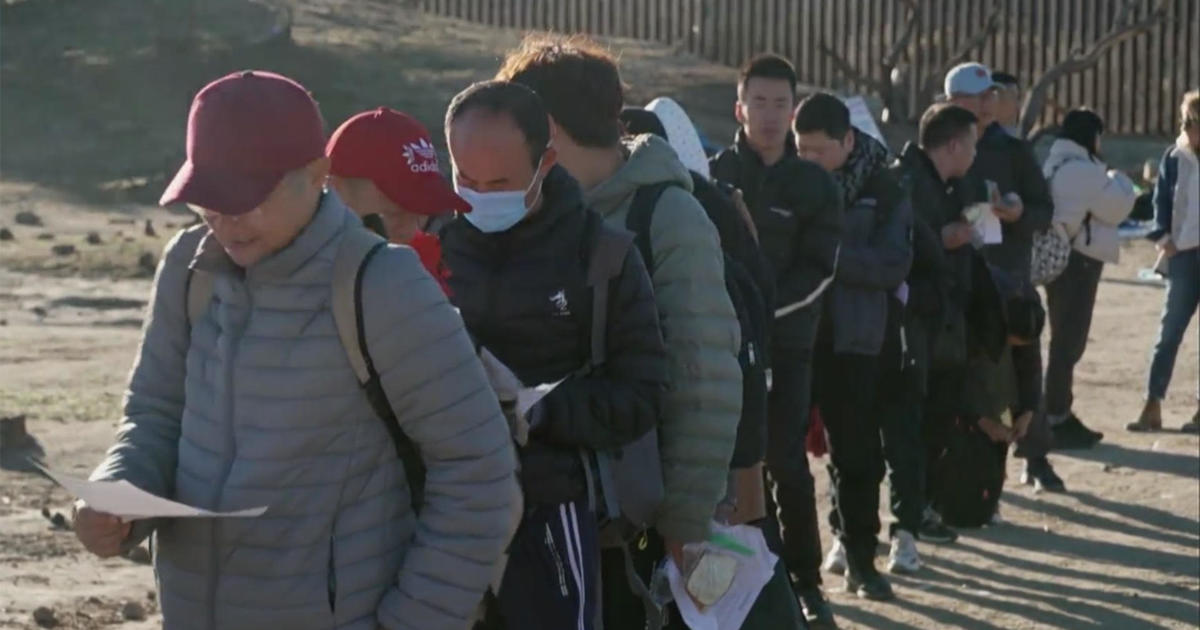Tuskegee Airmen From Colorado Inspire Younger Generations
DENVER, Colo. (CBS4) - There are only nine of them left in Colorado -- great pilots who helped America win World War II. They're the Tuskegee Airmen and they're hoping to encourage more generations to fly.
CBS4's Gloria Neal got the chance to sit down with one man who has inspired two generations to become great leaders and servicemen.
The history books are filled with stories about how the Tuskegee Airmen broke down barriers.
"Initially, they said that I wasn't physically qualified to fly. I, in essence, said, 'To Hell with you, I am going to fly,' " Lt. Col. John Mosley with the Tuskegee Airmen said.
And fly he did -- all the way into the history books. Mosley was part of the 477th Bomber Group, 318th -- and failure was not an option.
"I recognized that they didn't want me there," John Mosley said. "And all you have to do to encourage me is to tell me that I can't do or that I don't want you."
John Mosley is 90 and still inspiring with enough memorabilia to fill a museum.
"It's like living with history the things that they did, the trails that they blazed. The things that they did to inspire and motivate the rest of us to make that path that much easier for us," Capt. William Eric Mosley with United Airlines said.
Like father, like son: Eric Mosley, a retired Air Force pilot, inspired by his father, knew back then failure was not an option.
"You come back with those wings. You don't come back without them and that was a motivation for me," Eric Mosley said.
Those motivations were accompanied by a strong faith and a strong belief in self.
"I'm going to make it. I'm going to make it. Nobody is going to turn me around here. I'm going to make it," John Mosley said.
From John Mosley's wings to Eric Mosley's wings to a set of wings waiting in the wings for Air Force Academy Cadet 2nd Class Jeffrey Baptist. He is John Mosley's great grandson and Eric Mosley's nephew.
"I feel kind of small compared to the giants who have come before me," Baptist said. "It makes me very proud ... I may not deal with the trials and tribulations he dealt with in his time. It's a different age. But the least I can do is live my life with integrity, honesty and determination."
Back in his time, John Mosley says not only did blacks in the pilot program have to be smarter; they had to have a gimmick.
"One gimmick was that I didn't smoke and never have smoked, but I always had a packet of cigarettes in my right pocket here so that if anyone said, 'Hey Mosley, you got a smoke?' I had a smoke for them," John Mosley said.
Back then that type of gimmick was called survival. Today it's called "playing the game."
"I made sure that there wasn't anything there that would make him feel as if he had something to say, 'I'm going to wash this colored boy out,' " John Mosley said.
And like his uncle and his great grandfather, Baptist knows failure is not an option.
"Half of what I do, I do because I want them to be proud and I want them to have something they can smile upon," Baptist said.
"Even though it might seem like you might not have what it takes, do everything you can to qualify yourself to work as hard as you can. Let somebody else tell you that you can't do it. Don't take yourself out of the fight," Eric Mosley said as advice to the younger generation -- something he learned from the older generation.
"I kept telling him that he could do it and that's what I had to keep telling myself -- that I could do it," John Mosley said.
The title Tuskegee Airmen refers to those involved in the Tuskegee experiment, which was the Army Air Corps program to train blacks to fly. However, once they became pilots, they had to fight to fight in World War II.
Of the 1,000 Tuskegee Airmen trained, it's estimated only 250 are still alive today.




